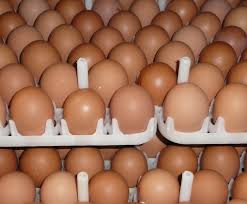In a move aimed at reducing the cost of eggs and other poultry products in Lagos State, the Poultry Association of Nigeria (PAN), Lagos chapter, has announced plans to establish direct-to-consumer sales points across all the Local Government Areas (LGAs) of the state. This initiative is designed to eliminate middlemen and could potentially lower the price of eggs by as much as N1,000 per crate.
PAN Lagos Chairman, Mr. Mojeed Iyiola, disclosed this during a media parley on Monday, where he explained that the association is engaging with local governments to allocate dedicated spaces where poultry farmers can sell their products directly to residents.
“We are currently working with the local government areas in Lagos State to give us space in their premises where we can sell the produce at affordable prices without the interference of middlemen,” Iyiola stated.
He lamented that consumers are currently paying up to N6,500 for a crate of eggs due to middlemen markups, while farmers only earn between N5,000 and N5,500 per crate at the farm gate. He expressed confidence that direct sales will help bridge this price gap and ease the burden on Lagosians struggling with high food prices.
“This will help cushion the effects of the hike in the price of poultry produce for the common man, as we can now sell to them directly,” he said.
The announcement comes against the backdrop of the recent N500 million subsidy granted to poultry farmers by the Lagos State government, which industry players say has contributed to some reduction in the cost of maize, a critical ingredient in poultry feed.
However, Iyiola noted that while maize prices have dropped due to government intervention, the overall cost of poultry production remains high, largely because other key inputs continue to be expensive and unstable.
“Although maize prices have dropped, maize is only one out of about 15 ingredients used in the formulation of poultry feed. We still have around 14 other components, and their prices are far from stable,” he explained.
He highlighted that maize accounts for nearly 60 per cent of poultry feed, yet the costs of other essential inputs such as Methylene, lysine, urea, and groundnut cake have remained prohibitively high.
“For instance, we used to buy a 25kg bag of Methylene for between N25,000 and N30,000, but now the same quantity sells for N150,000. Lysine prices have also skyrocketed, and the costs of urea and groundnut cake have not reduced either. These factors continue to significantly influence the cost of eggs,” Iyiola said.
He therefore called for broader government support beyond maize subsidies to stabilize the poultry feed market. According to him, interventions need to address the entire range of feed components to ensure that poultry products remain affordable and that farmers can sustain their businesses.
Industry observers say the initiative by PAN Lagos, if successfully implemented, could serve as a model for other states to reduce food prices by cutting out middlemen and enhancing direct market access for farmers. It could also complement the Lagos State government’s broader food security strategies aimed at insulating residents from rising inflation and food costs.
The poultry sector has faced significant challenges in recent years, including feed price volatility, input scarcity, and fluctuating demand, all of which have been exacerbated by inflationary pressures and the depreciation of the naira. Stakeholders argue that comprehensive policy responses and sustained private sector engagement will be key to reviving the sector and ensuring food affordability for Nigerians.
